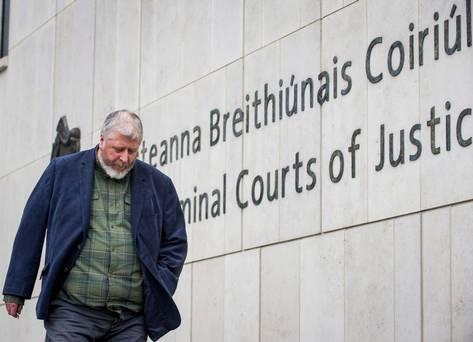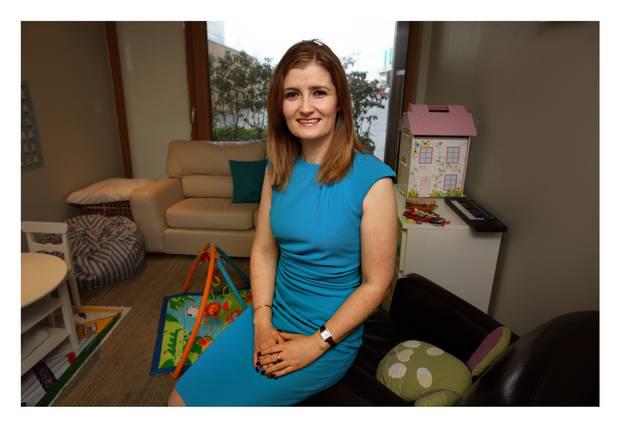|
Collateral damage: the family upheaval that results from abuse
By John Meagher
Betrayal. It's the first word that Dr Marie Keenan thinks of when she considers the overriding emotion experienced when a family member is revealed to be a sex offender. "That sense of betrayal is enormous," she says. "This is someone they loved, whom they thought they knew intimately, and now they are having to confront the most horrific news." Dr Keenan, a lecturer at the School of Social Policy, University College Dublin, is one of the country's foremost experts of the impact of sex abuse - not just on the actual victims, but those other people caught in the slipstream. "It's not just a private tragedy," she says, "but when these cases go to court and the names are published, it becomes a public matter as well and that can be terribly traumatic. "A family that heretofore had a private life is catapulted into the public domain because of the actions of another." While there was enormous public anger this week about the perceived leniency of the sentence, there was also much thought given to the suffering of Humphries' family. It was they, after all, who helped ensure that justice be done. His then teenage daughter had come across the incriminating texts and his wife had bought the matter to the attention of the police. They were thanked in court by the young woman who had been groomed and abused by Humphries while she was still a teen. But despite such praise, like every family who has had their world turned upside down in such a way, the road to coming to terms with the past is likely to be paved with obstacles. Misconceptions "It's very difficult for families because there are so many questions they'll have to contend with," Dr Keenan says, "and also misconceptions like the idea that paedophilia is, in some way, in the genes. Of course, there's nothing hereditary about it but it doesn't mean that that idea isn't out there. I've worked with adult men whose fathers were sex offenders and they have had huge difficulty trying to get normality back in their lives. They've had troubles in their relationships - and it all keeps coming back to what their father did." Family psychotherapist Joanna Fortune says the impact on a family can be akin to death, especially when there's no reconciliation with the perpetrator. "Figuratively speaking, it's like burying someone that had been such an important member of the family," she says. "Everything you thought you knew about that person has been turned on its head, but also, that loved one who had been there, is now gone - maybe in prison, or living far away. There may be no contact any more." But, she adds, unlike a normal death where you can grieve in public, the families of sex offenders don't tend to get that sort of release. "They feel they have to carry shame around with them and shame can be so destructive and can hamper so many aspects of their lives. They have to try to understand that there is nothing for them to feel shame about. It was somebody else's actions, not theirs, that caused so much suffering. But that can be something that can be very difficult to eradicate." Risk of grave divisions Fortune also believes families are at risk of grave divisions forming. "I think it can be really helpful if they are counselled together, as a unit," she says, "or, at the very least, talk over this awful subject with each other. What they really wouldn't be advised to do is suppress their feelings and not talk. Unfortunately, this is something that has to be addressed - it's not just going to go away." A Dublin-based therapist who has counselled the families of sex offenders says the scars can be very difficult to heal. "They find themselves in a nightmare world," she says, "and that's magnified if the person is a public figure and there's a lot of media and social media coverage, just as we saw this week with Tom Humphries. Of course you feel huge sympathy for the person that he sexually abused, but you've got to think about the anguish that his family are suffering, too. "There's a devastation there that's unlike any other type of crime. I mean, there's a sense of shame if your father is jailed for financial corruption, but it's at a completely different level if your father is convicted of child abuse - and I've seen grown men and women struggle to reconcile the loving father they remember from their youth and the person who did such monstrous acts to a child. "And while people might think they would be supportive of a family who found themselves in that situation, in many cases it doesn't happen. "I've counselled people who've had friends disappear on them, who simply stopped picking up the phone to them. I've had children of abusers whose own marriages have broken up because of the revelations. And, all too often these people feel alone. There's no support group for them. They're the hidden victims of abuse." A decade ago there had been a support group to sex offenders' families but, says Dr Marie Keenan who helped establish it, "it whittled away". There is some family counselling through the charity One in Four's Phoenix Programme, which works with those men with a predilection towards paedophilia, but have not been convicted of child sex abuse. Dr Keenan has written extensively about the sex abuse within the Catholic church and notes "the ripple effect" of abuse. "Of course, it's hugely damaging to the victim, but I found that many of priests and some of the bishops too were greatly impacted. They had worked with someone for years and had not had the slightest inkling that there was paedophilia there. So there's a sense of guilt that they carry around with them. "People always ask themselves why they didn't sense that something was amiss with the person in question, particularly if they worked with them for years. 'Out there among us' "It can be very difficult to accept and, certainly, in the Church there wasn't enough counselling services provided. I would think it would be wise of 'The Irish Times' [Tom Humphries' former employer] to offer counselling to anybody who worked with him in the past." Joanna Fortune says there's an inevitability that family members and friends will wrestle with the idea that they should, somehow, have known about the paedophile tendencies. "The thing is, these people live in plain sight," she says. "They're not hiding in basements. They're out there among us, having their own families, volunteering at youth clubs, holding down good jobs. They're not just able to groom their victim, but also those around them into thinking they're someone they're not, deep down." She says that the first thing family members must do is accept that they bear none of the blame and she believes that what they need, more than anything, is for friends and community members to rally around and offer support. It's a laudable sentiment but one that's not always delivered, particularly for teenagers who have to contend with the fact that a parent or other family member has been convicted of child abuse. "It can be especially tough for them," Dr Keenan says. "There was a situation, some time ago, where a priest who had quite an unusual surname was convicted of child abuse. But among those who suffered badly were his nephews who were badly bullied at school simply because he was their uncle. "For years, they'd had horrendous abuse from classmates for terrible deeds carried out by someone else." Contact: jmeagher@independent.ie
|
.
Any original material on these pages is copyright © BishopAccountability.org 2004. Reproduce freely with attribution.

